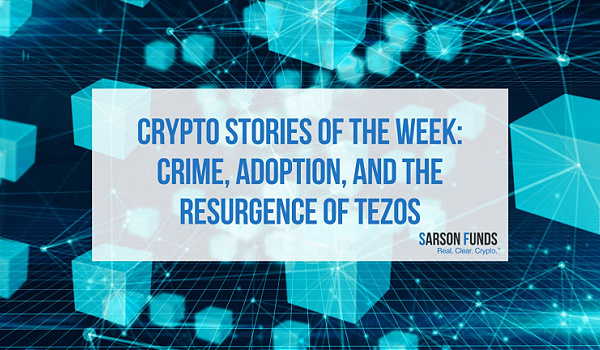By Ivan Dimov
Recently, it seems we are regularly hearing about another cryptocurrency-related scam, another major corporation developing non-fungible token (NFT) collectables, and another sovereign nation adopting digital currencies. But how do we sort through all the noise put out by the media? Do we feed into the over-cautiousness painted by the scary stories, or is it ok to jump in the water and play with the fish? It all goes back to doing extra research and then taking the budgeted and calculated risks. Not all stories show the whole picture or consider all sides, and therefore we must do more research and choose to believe only what feels true to ourselves. Blockchain adoption takes time.
The truth is that everything we do on the blockchain is stored on the blockchain’s ledger forever. Because of that, it is also true that blockchains provide a level of transparency that has never existed before in the currency world. This gives an edge for crime-fighters and law-enforcement agencies to pursue and tackle crime effectively. With that, it is expected for crypto-related crime to decrease exponentially as more and more agencies become familiar with blockchain technology and wider adoption.
Last week the U.S. House of Representatives passed the America COMPETES Act, a bill which is focused on increasing the US. competitiveness with China. However, the same bill also features language which provides the U.S. Treasury Department the ability to impose “special measures” which include surveillance and prohibition against “certain transmittals of funds.” This will remove checks and balances measures currently in place and allow the Treasury to have unilateral authority over economic decisions. The power that may be given to the Treasury may adversely affect the crypto industry by banning certain financial products and limiting the growth potential. The crypto community is urging its members to contact their state’s Senators and urge them to amend or to fully remove the provision allowing this to happen.
Cryptocurrency adoption continues to gain momentum. The Central Bank of Jordan is the latest central bank joining the group of select countries that have either already established a central bank digital currency (CBDC) or are still exploring its potential. At the same time, the country of India who has changed its stance on cryptocurrency acceptance has moved forward with legalizing cryptocurrencies. The country’s Finance Minister Nirmala Sitharaman has proposed a 30% tax on gains from trading crypto. While the tax rate seems high, the support for crypto is welcomed by the community.
An increased amount of activity of transactions and wallet addresses have surged in the recent months on the Tezos blockchain network. Tezos is a proof-of-stake blockchain that offers very low cost transaction fees and supports smart-contracts, making it an attractive platform for NFTs, collectors, and artists/creators. Since December, a number of institutions have established a presence on the Tezos blockchain. Ubisoft, a gaming giant, who was reported to also be buying land in Sandbox, an Ethereum based metaverse game; Gap, a U.S. based clothing retailer; Redbull and McLaren with car racing related NFTs – are just a few of the examples of institutions making moves with NFTs and blockchain technology.







